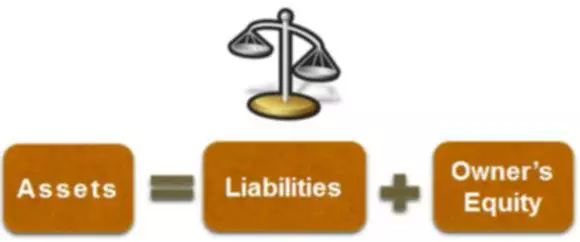Content

They generally do all data entry into accounting ledgers or software. So you’ve concluded you can’t afford your own hourly rate to keep doing your bookkeeping.
Additionally, there are quite a few outside expenses that come with hiring an employee. At minimum, they need to provide you with an office space, a desk, and a computer. As a contractor, you’re using all your own equipment, so you’re saving them all of that money. One thing you need to be aware of is how many bank accounts your client has. Each bank account will take you significantly more time because you will have to look up the statements individually and reconcile them.
What’s the True Cost of Doing Your Bookkeeping In-House?
Bookkeepers and accountants usually charge a fee per hour of service. The average cost of accounting services for small business differs for each unique situation. But since bookkeepers do less-involved tasks, their rates are often cheaper than accountants. How much will it cost you to hire a part-time bookkeeper for a small to medium-sized business?

Or perhaps you’re tight on cash and can’t afford to hire a professional right now. A bookkeeping service does more than preserve financial records. It records all your financial metrics and assures you maintain regulatory compliance at the state and federal levels. Now, you may have an accountant that also completes the tasks of a bookkeeper, but not the other way around. Accountants must meet specific education and certification requirements that vary slightly by state. In general, accountants usually need a bachelor’s degree in accounting and pass a CPA exam in their state. However, when talking about bookkeeper costs, it is important to note their differences.
How Much Does it Cost to Outsource Bookkeeping?
Whether you need a full time or part time employee will greatly impact how you calculate labor cost. Employee costs like benefits, training, and time-off are important to think about when comparing how much does a bookkeeper cost an in-house bookkeeper and a financial management company. It might seem like a lot of money now, but using this cost-effective approach could actually save you time and money in the long run.
- Basically, bookkeeping service providers offer just enough support to help you get your bookkeeping systems up and running.
- On a per-project basis, you can hire someone and pay them only for the time they spend on the project, or for an agreed-upon amount of time.
- The hourly rate for bookkeeping services varies by region and the job itself.
- Outsourcing accounting services allows you to reap the benefits of an accountant without the costs of a full-time employee, such as insurance and other benefits.
It’s also arguably the most valuable bookkeeper certification, as the vast majority of small businesses in the US use QuickBooks. The AIPB certification program is ideal for someone who doesn’t have any formal education in bookkeeping. Certification exam and materials are $610 for nonmembers and $515 for AIPB members. Upon completion of all certification requirements, you’ll earn the designation of Certified Bookkeeper , which you can include on your business cards and marketing materials. Hourly pricing is a great option when you only need help with the books occasionally.
Full Charge Bookkeeper vs Outsourced Bookkeeping
On the other hand, larger companies with a higher volume of complex transactions will need more hours. An outside bookkeeper will charge them at the higher end of the range. There’s less of a clear-cut answer when it comes to the cost of outsourcing a bookkeeper. An in-house bookkeeper will often cost you more than an outsourced bookkeeper, although hiring one so gives you more oversight and control over your bookkeeping. Bookkeepers keep track of a business’s earnings and expenses, ensuring all financial records are in order. Find a company that offers 24-hour service so that they can help you when you need it most.
- The less time you spend on bookkeeping and taxes, the more time you have to grow your business.
- Do your due diligence to make sure you’re billing your clients fairly.
- This rate is often affected by your location and job description.
- Your Guide to Growing a Business The tools and resources you need to take your business to the next level.
- Having a bookkeeping expert manage your accounts can save you time and allow you to concentrate more on your business strategy and profit growth.
- However, be aware that business size does affect a bookkeeper’s workload and may lead to you paying more or even for a second bookkeeper to alleviate some of that burden.
- That subscription is set and based on an agreed-upon scope of work, and will not incur additional fees based on transactions or report requests.
This is so they can be deposited into the bank on a regular basis. A bookkeeper’s main objective is to make sure that information flows smoothly and efficiently. They take all the data from receipts and invoices and input it into financial software.
Part-Time Bookkeeping Cost
Your business’ industry, size, number of employees, and length of time you’ve been operating can all affect the amount of support you need. A full-service bookkeeper will manage tasks including paying invoices, billing customers, processing payroll and timesheets, and month-end financial statement processing. You will still need to review the final products as the business owner to ensure correctness. If you’re just doing your research to see if you want to become a freelance bookkeeper, there are a few key things you need to consider. First, you need to decide if this is going to be your side hustle or if you’re committed to providing bookkeeping services on a full-time basis. To help you navigate through this process, we have created a comprehensive guide on how to start a bookkeeping business. If they do agree to provide retroactive records, you could end up with a pretty hefty bill.
At some point or another, you may have clients of all sizes—aka small, medium, and large clients. And when one client’s size is larger than another client, you’re going to want to price services accordingly. Bookkeeping services usually have a variety of payment plans to choose from. To save yourself money, it pays to know which one suits your needs. Basically, bookkeeping service providers offer just enough support to help you get your bookkeeping systems up and running. In this regard, you will be charged a set monthly fee of $100 to $150 per month as well as $30 to $40 per hour spent on your books. This pay-for-what-you-use system is currently popular for small company owners.
How will your business size factor in?
In recent months, professional services firms are facing more pressure than ever to deliver value to clients. I often mention that, starting out as a bookkeeper, you can charge $40 per hour to your clients.